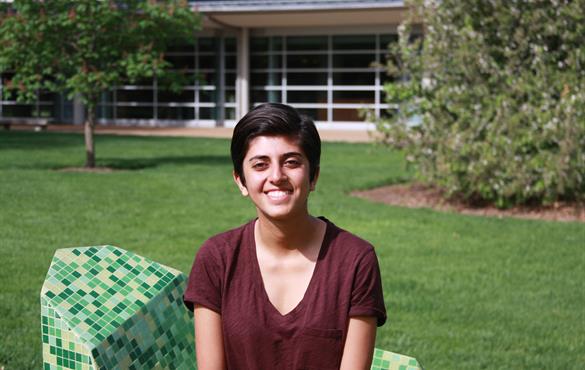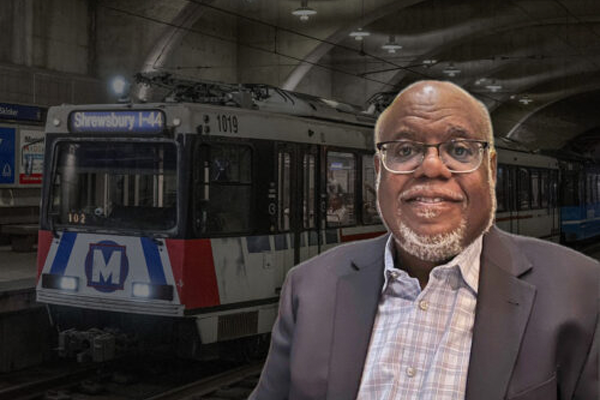Alumna Agarwal finds success in taking a chance
Alumna Radhika Agarwal took a chance to work for a startup in India and has been a big part of its success

Sometimes, fulfilling a dream doesn't turn out as expected, but something better is just around the corner.
When Radhika Agarwal earned a bachelor's degree in systems science & engineering in 2015 from the School of Engineering & Applied Science at Washington University in St. Louis, she headed to San Francisco for her dream job at a product design firm. But she soon found herself longing for work with more value to human needs.
"While I was learning new skills and living in a new city, I didn't feel like these challenges were productive," she said, on a recent visit to the university. "I was getting jaded by life – it was all happy hours and 80-hour work weeks. The turning point was I realized I wasn't growing, and I didn't feel like I was contributing to work that was meaningful."
Agarwal talked with a mentor at Stanford University, who told her about a startup in India that had come out of Stanford. Although she had just signed a lease on an apartment, she agreed to go to New Delhi, India, for three months starting in January 2016.
Agarwal had worked for four startups as an undergraduate and started her own, through the School of Engineering & Applied Science's 2014-15 Discovery Competition, called Bridge, a non-monetary skill and resource exchange for local communities. Through her work with those startups, she had worked in medical product development and design and honed her entrepreneurial skills. She had an international background as well, having grown up in Singapore and later studied abroad at University College London, so she was excited to experience life in a drastically different city.
After Agarwal's first three months with Windmill Health in India, the company has implemented its device in hospitals across India and plans to expand globally by the end of the year. She is now lead product designer of the company, assisting the CEO in developing key strategic partnerships for global implementation and designing the company's next-generation products ready for 2017 release.
Windmill Health makes a neonatal resuscitator used to treat birth asphyxia. Although most babies kick start their breathing response through the nervous system when they are born, some babies need to be manually resuscitated. The bag valve mask used to resuscitate babies requires some skill and dexterity to use it, and in developing countries, a physician or trained health-care professional is not always available. Windmill Health's resuscitator is the first foot-operated device that allows the user to use both hands to get a good seal on the mask, which drastically improves the outcome of the procedure, Agarwal says.
"There were studies conducted with nurses who had been using the bag valve mask for years," Agarwal says. "After being trained for only 20 minutes on our device, Neobreathe, they were able to provide ventilations much more accurately and safely with Neobreathe than with the bag valve mask. We have already implemented it in 20 hospitals, have gotten great feedback from users, and lives have been saved already."
Agarwal says the experience has not only helped her to grow professionally, but personally, which was one of her goals.
"When you move to a place like Delhi, you have days when you think, 'This is exactly what I should be doing,' and other days when things are hard," Agarwal says. "But overall you have a chance to do remarkable things, and your successes are amazing, and your struggles are opportunities for personal growth."
Agarwal says through the experience she has learned as much about people as she has about business.
"When I graduated, I realized the most important thing you can do is try to get better at understanding human behavior and people, because that affects your relationships, and relationships are everything, even in business," she says. "Any time you want to create something that will interface with people, you need to understand people."
Her WashU engineering education played a role in that.
"It's been really valuable to come from an engineering, design and entrepreneurial background and also to have that medical focus as well, because I was able to develop those relationships with every specialty in the company and have mutual respect for what they do and what I do," she says. "That's where you see diversity of background as important. When you are in these positions, people need to trust you and know that you respect what they do — otherwise, it doesn't work."



